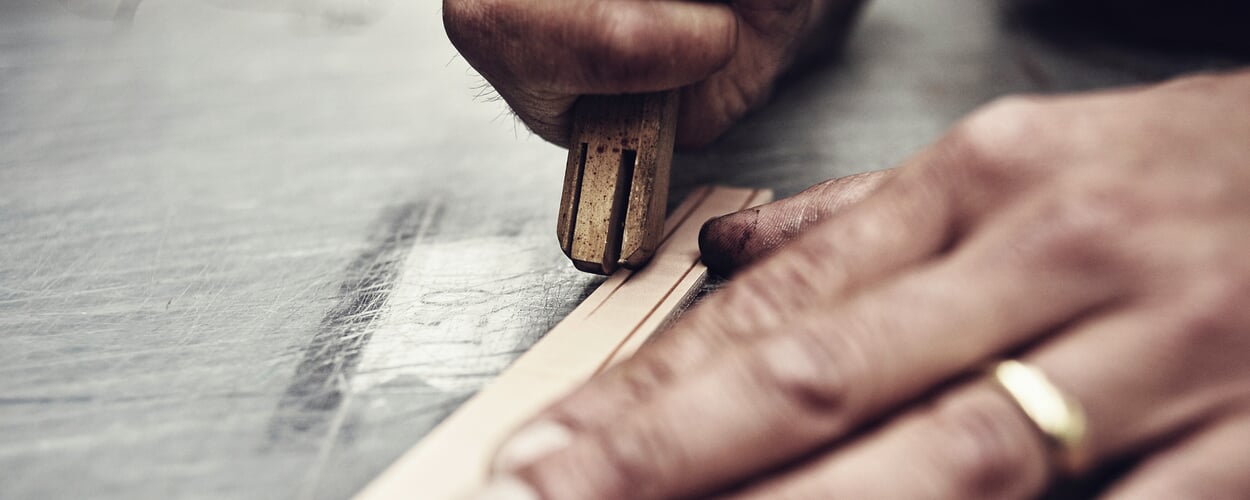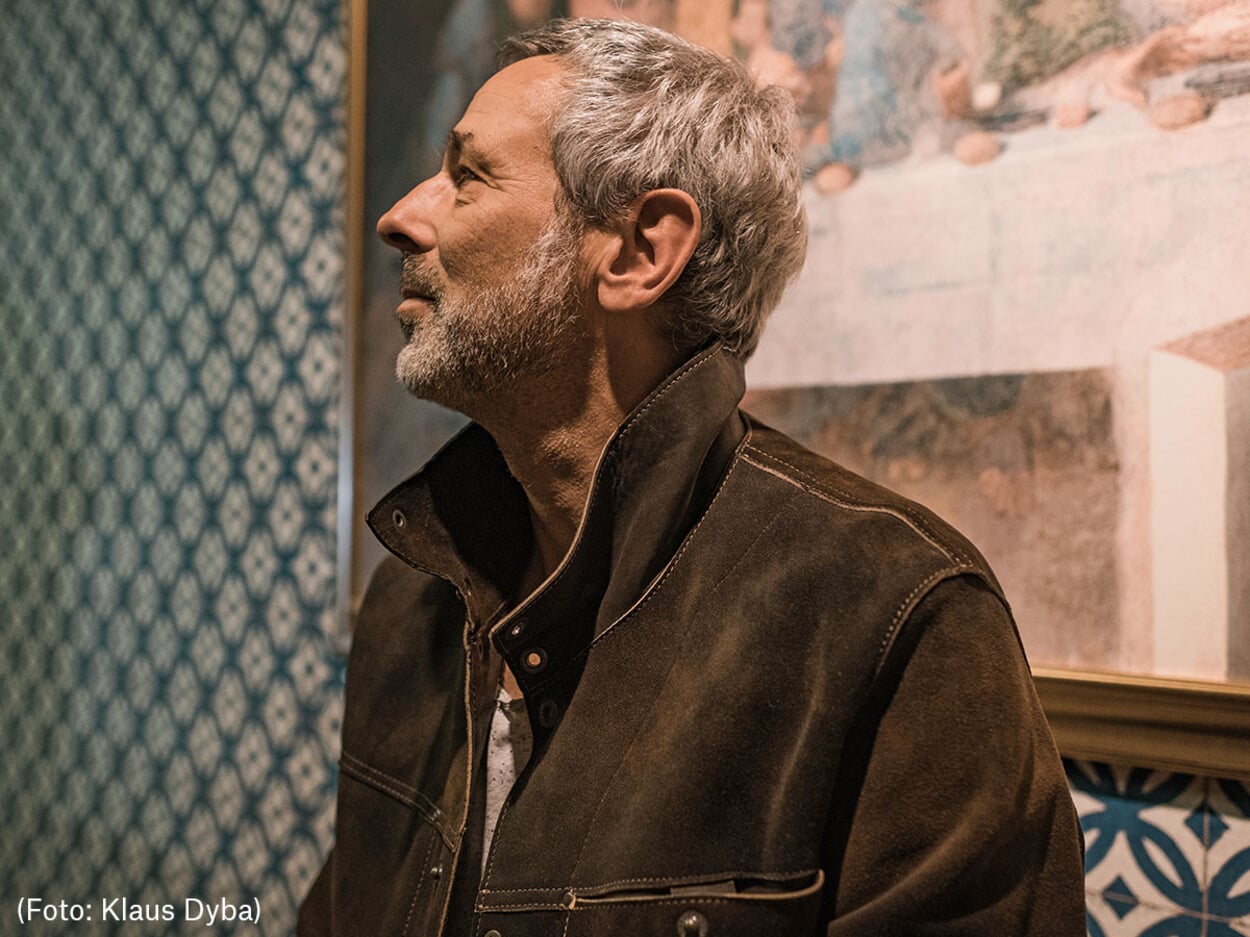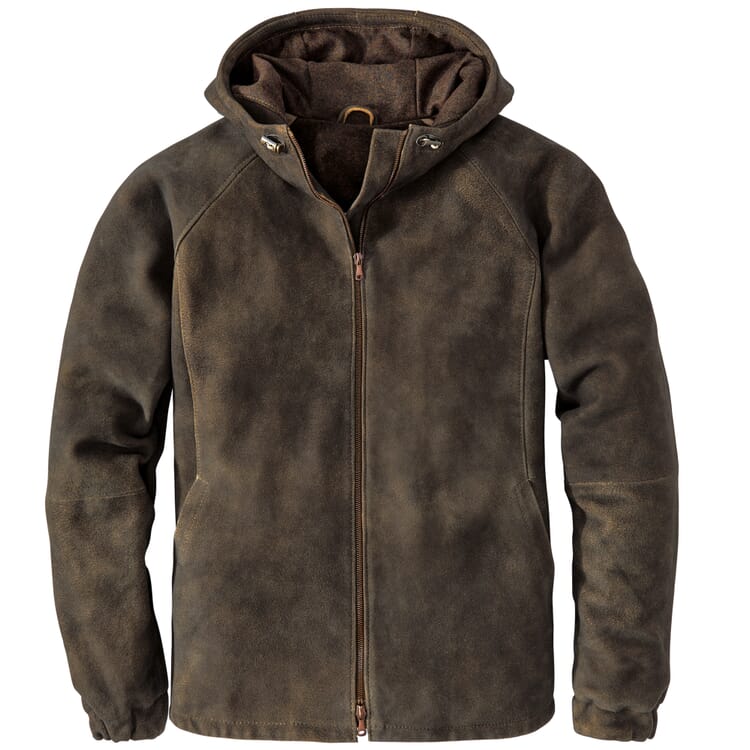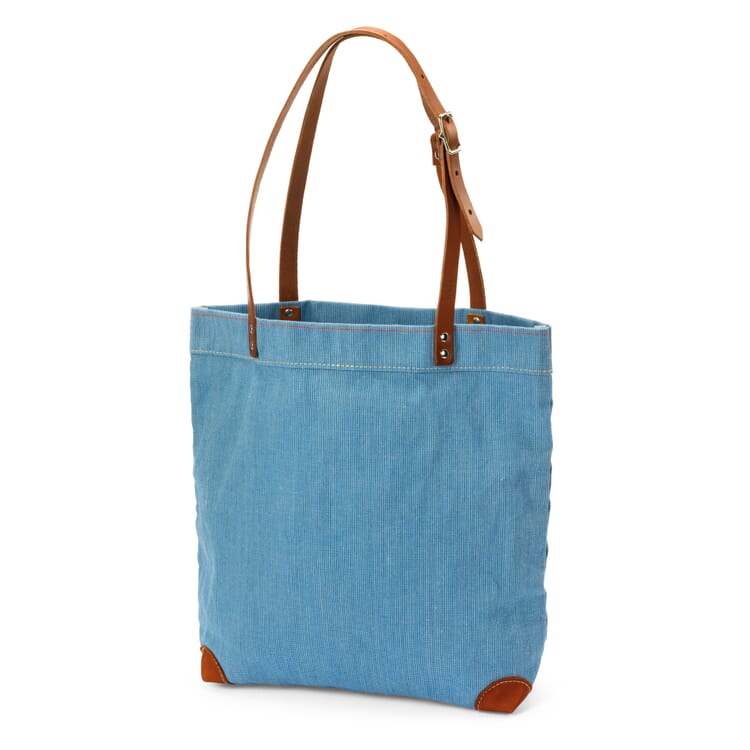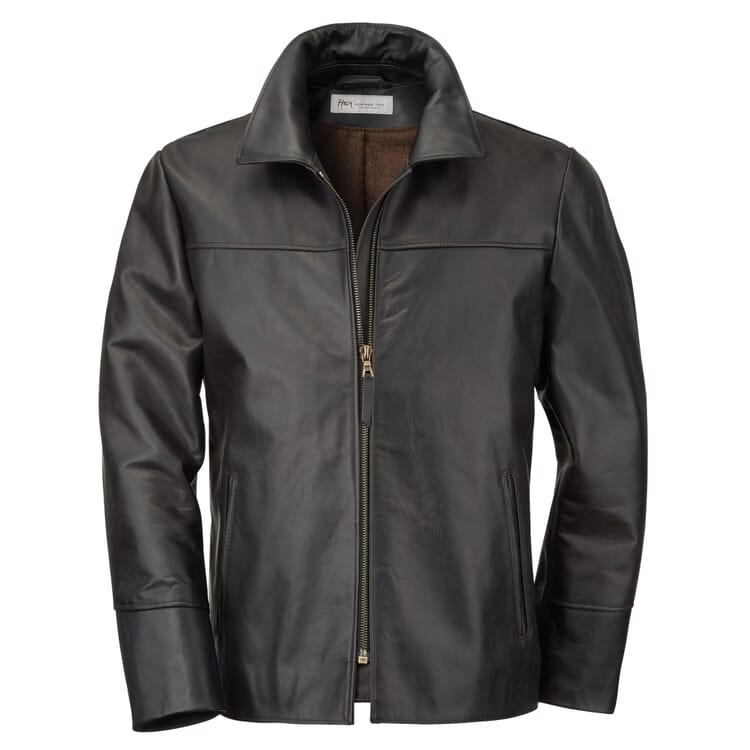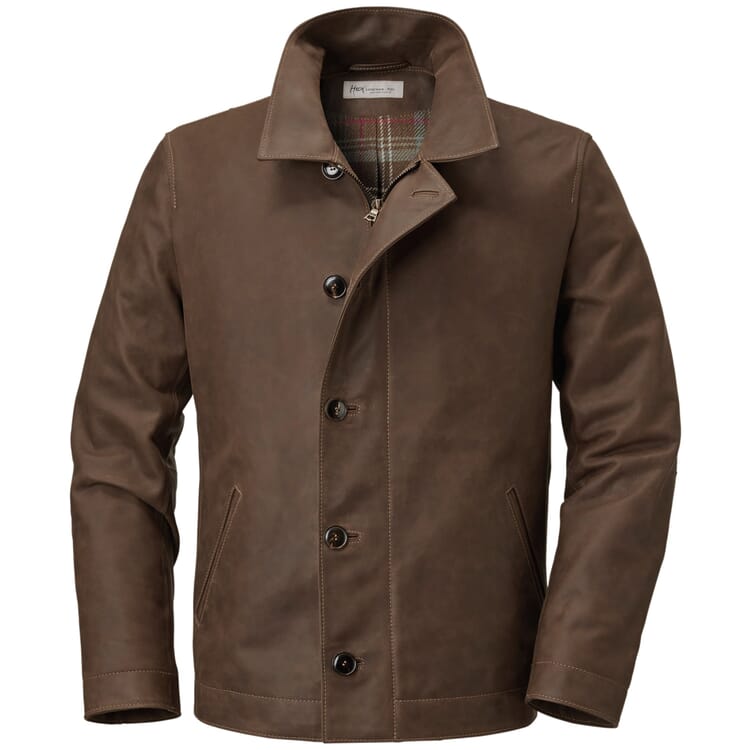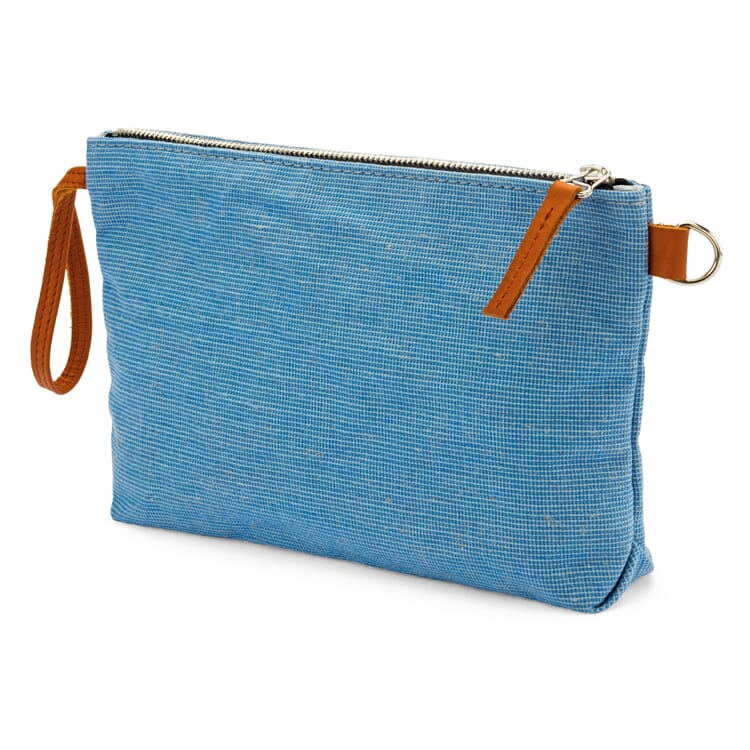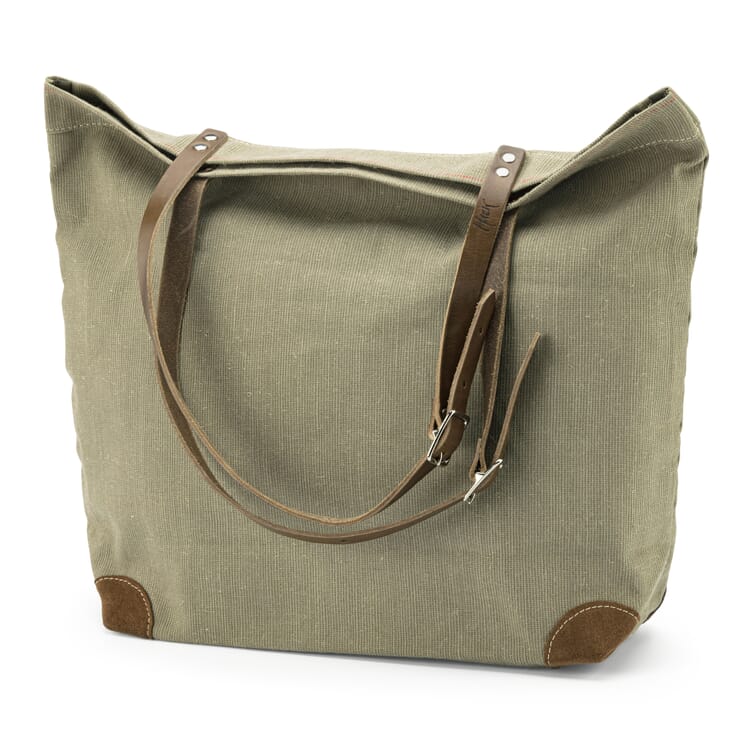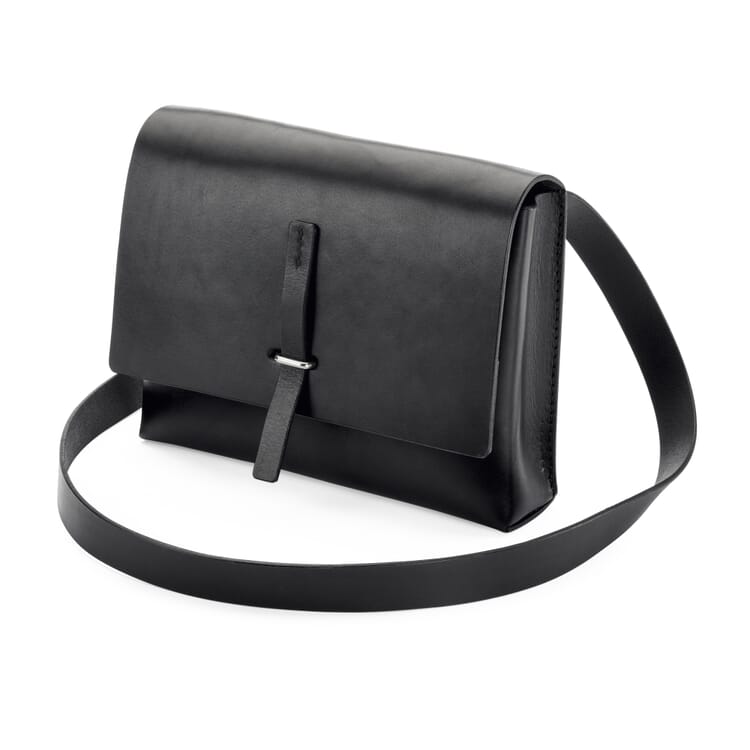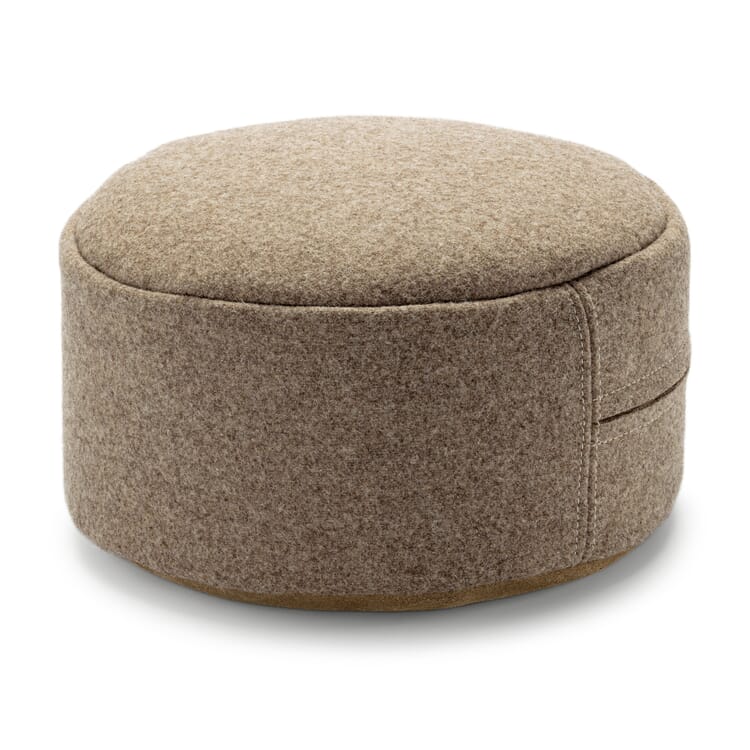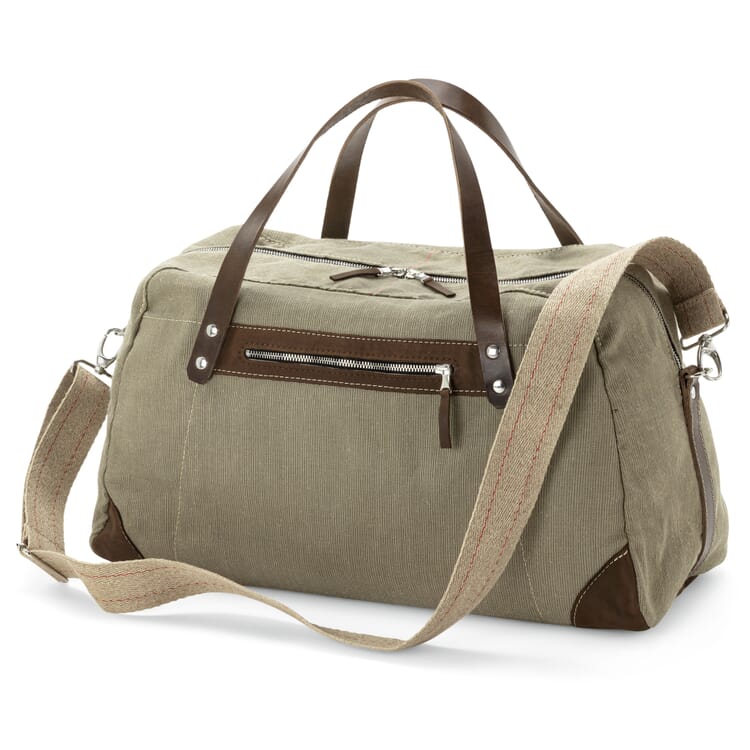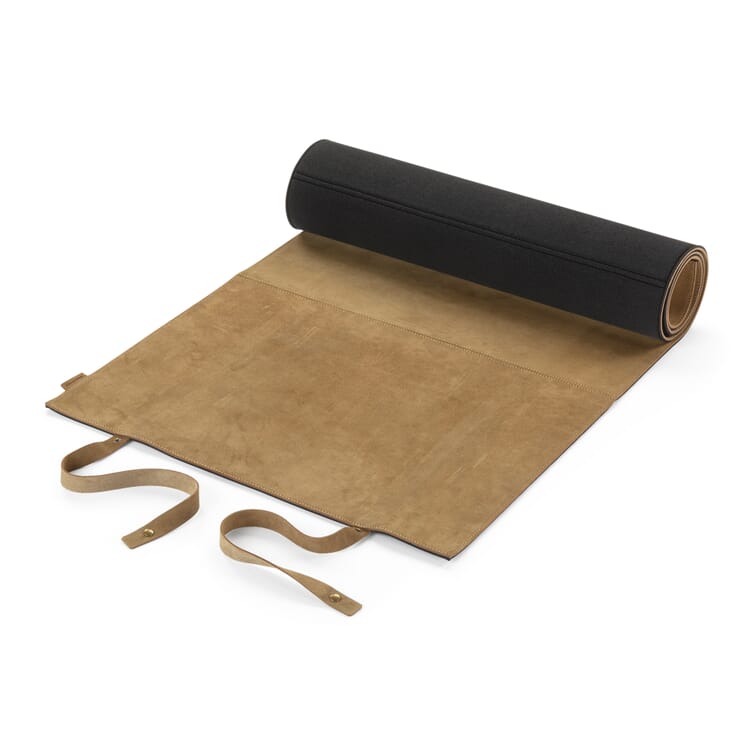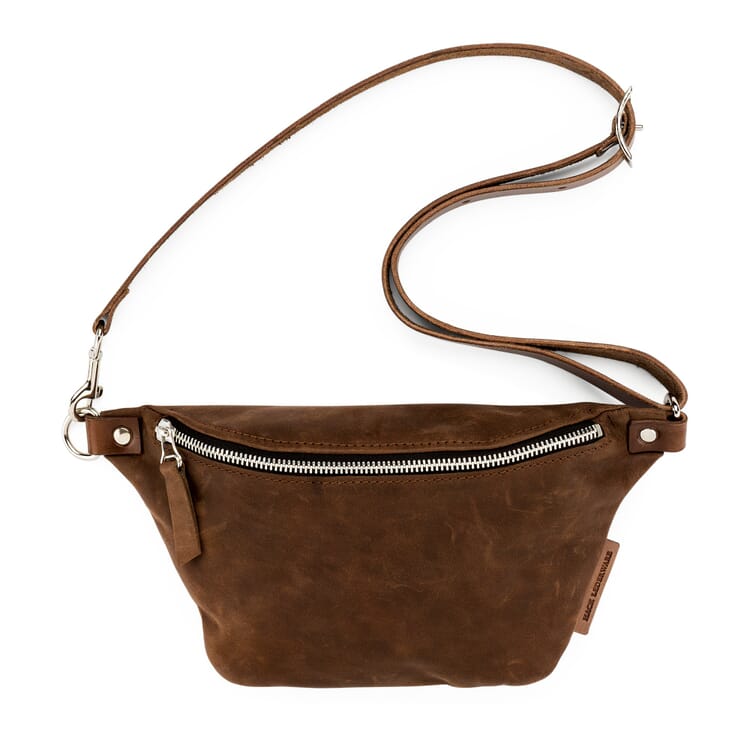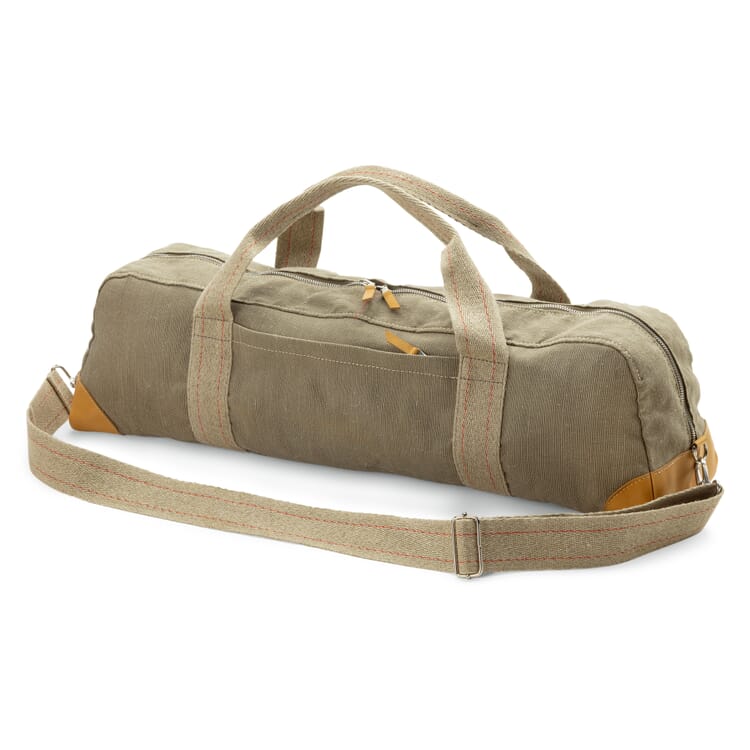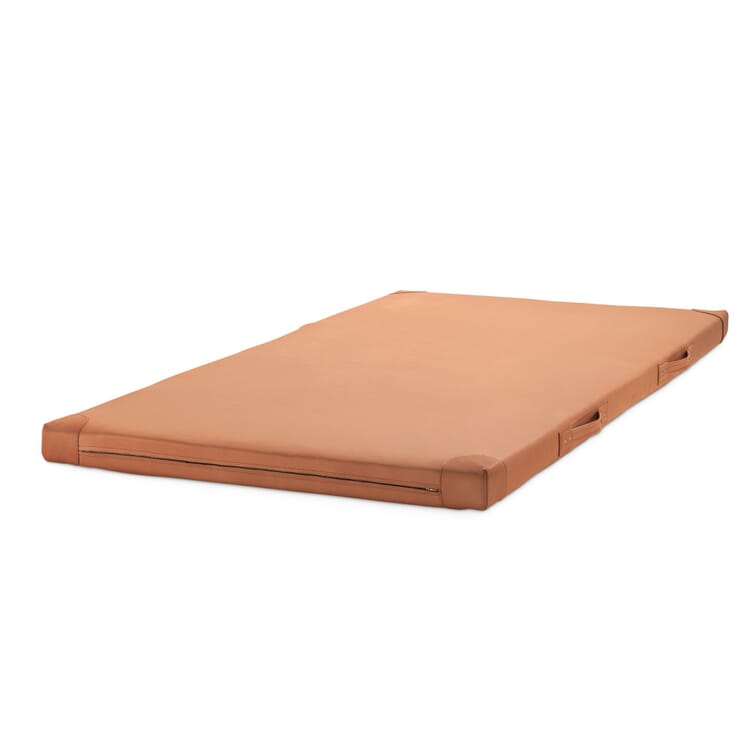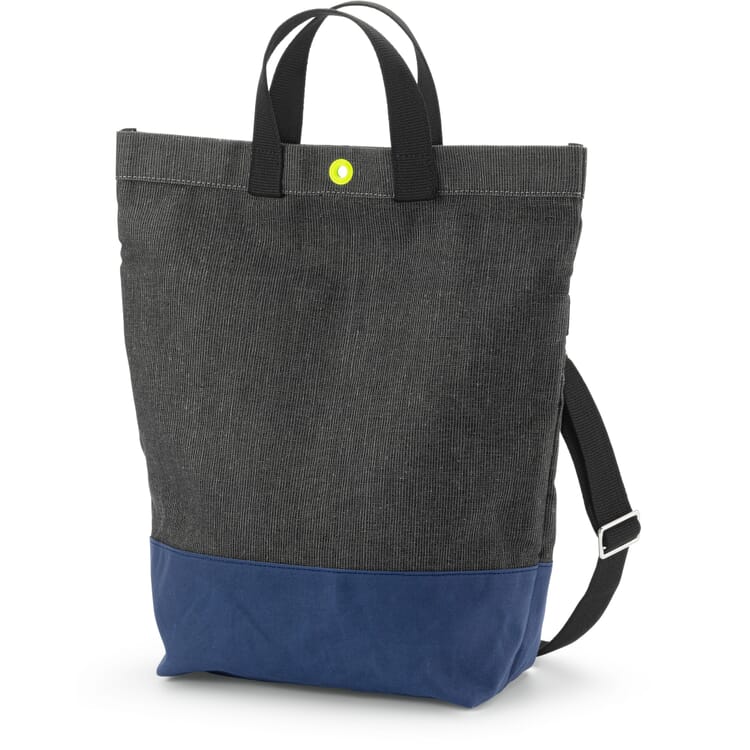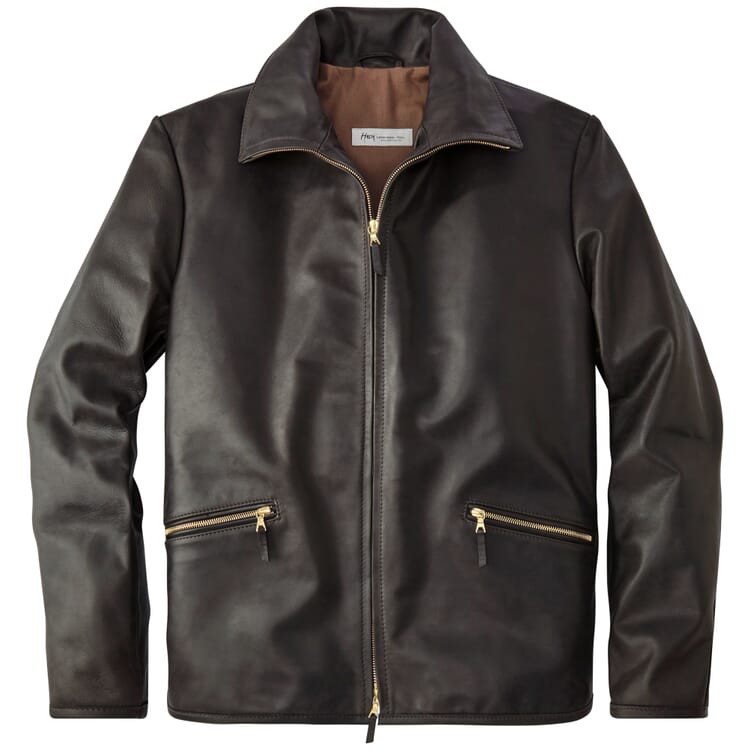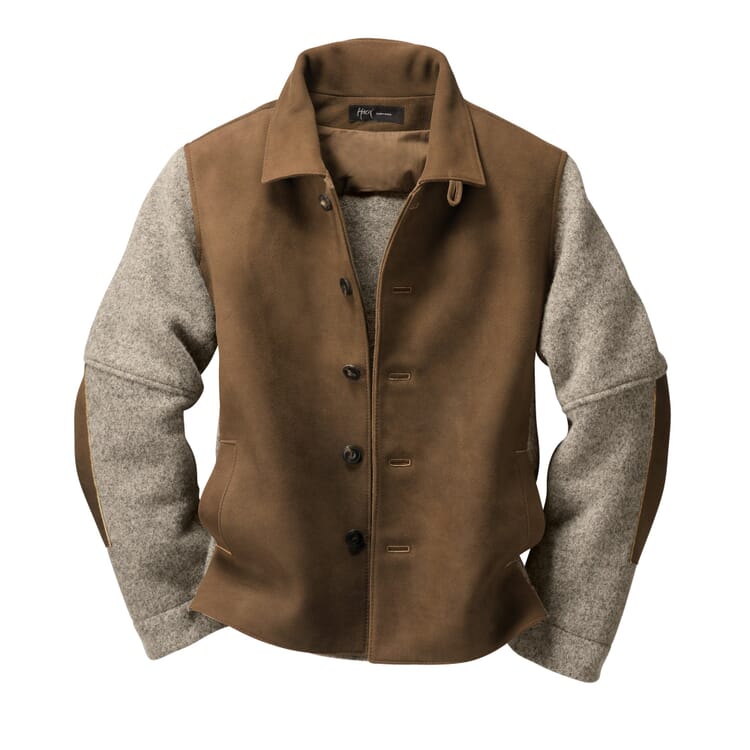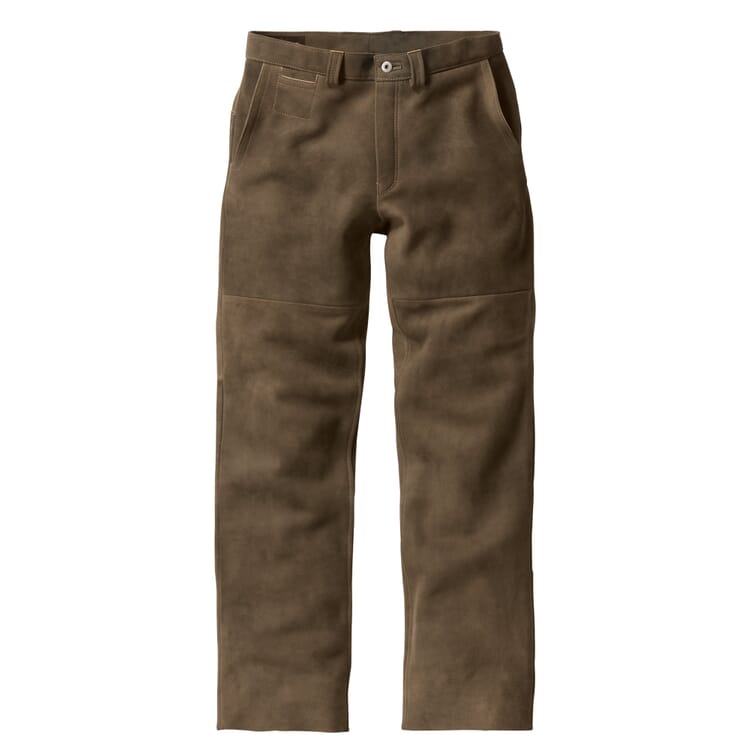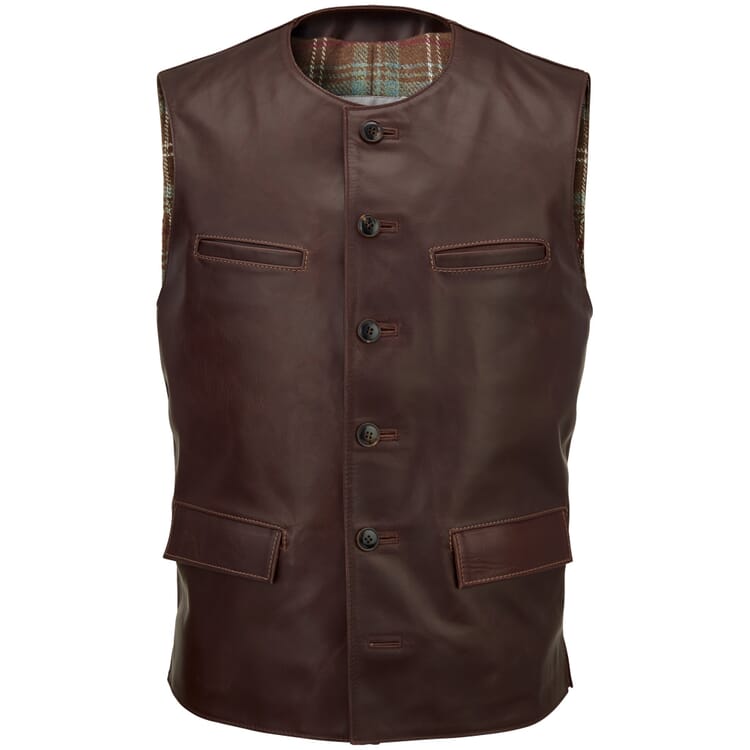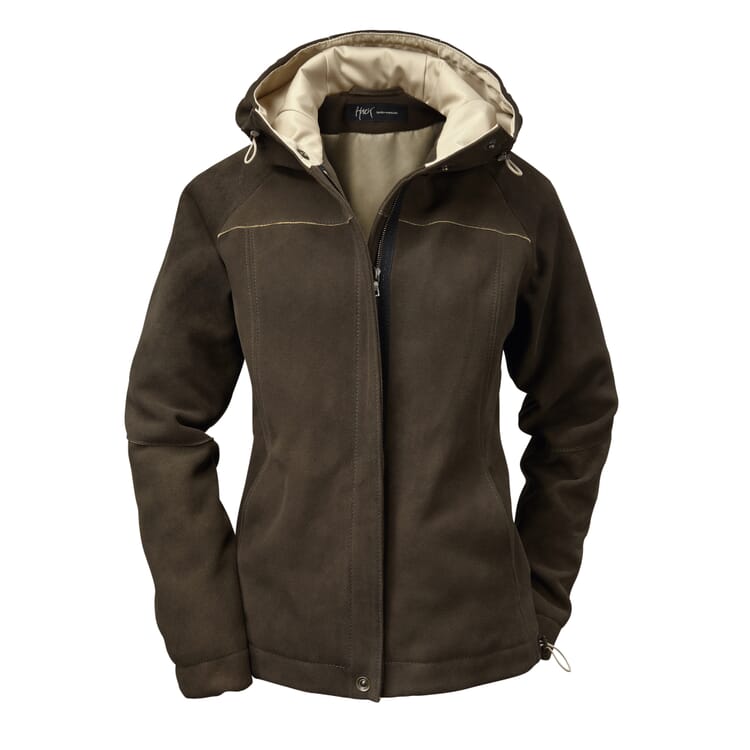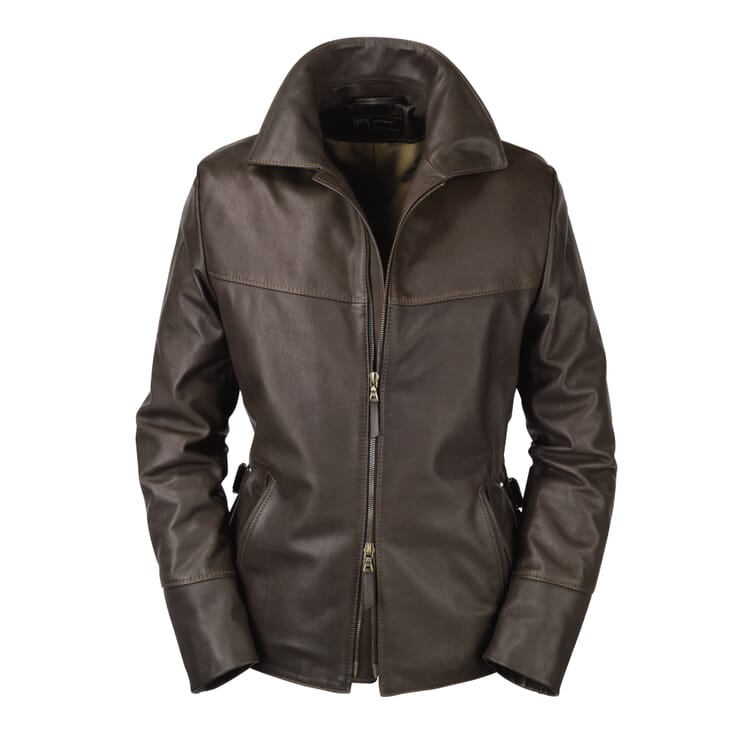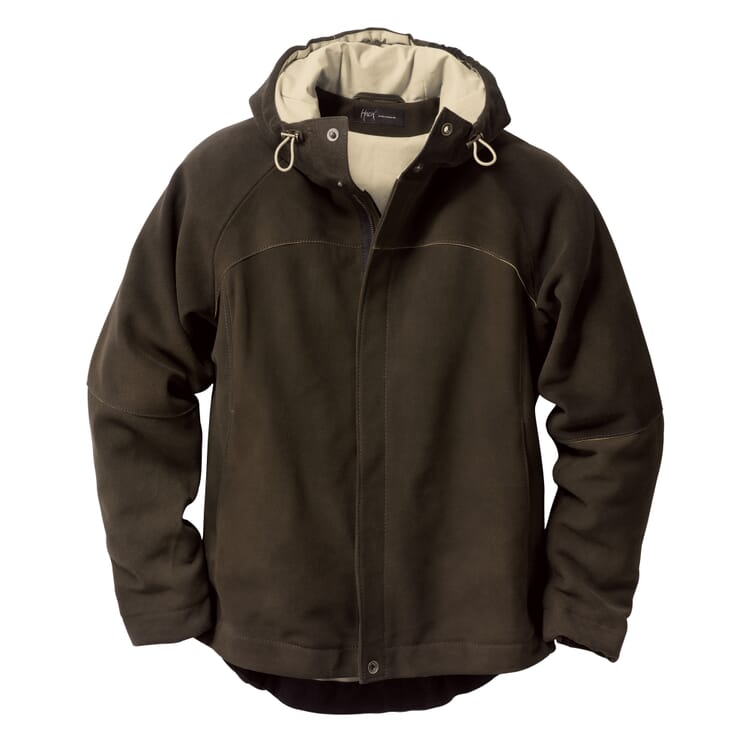Christoph Hack. An autodidact with ambitions
Christoph Hack gained his first experience in leather production at his grandfather's sewing machine. At that time he was just 16 years old. Today, more than 30 years later, his company Hack Lederwaren stands for top-quality leather products that impress with their timeless design and durability. We met the self-confessed autodidact for an interview and talked to him about the core values of his work.
Mr Hack, what is your opinion on the subject of "conscious consumption"?
Christoph Hack: For me, conscious consumption means not buying a new leather jacket every few years, but maintaining a product for as long as possible.
Where is this attitude reflected in your company?
Christoph Hack: All of our garments and bags are repairable and we maintain them for a very long time. We focus on a timeless design, I select the materials to the best of my knowledge and conscience. We mostly work with very long-term partners in the leather industry - many tanners and dealers are based in Germany. The leathers and heavy textiles are mostly made especially for us. This is the only way we can realize our very own idea of quality.
What is a high-quality leather for you?
Christoph Hack: The first impression is decisive for me. I know immediately whether a leather is okay for our quality requirements or not. I think everyone is an expert in that. As soon as you touch a leather and smell it, you know whether you like the material or not. If the leather feels warm and open, it usually behaves in such a way that the aging process makes it more and more beautiful. Muted (too strongly colored) leather, on the other hand, can be recognized very quickly by the cold artificial feel.
For many products, longevity is equated with little change. Why is this different with your leather products?
Christoph Hack: Changing our leather products to their advantage is very important to me. However, this requires that the leathers are worked in such a way that they allow this aging process to take place. This does not work with covered, varnished or otherwise artificially processed leathers. The more open, the better. In addition, unlike products that have a certain amount of pre-patinating at the factory, we also like to leave a little work to our customers. Everyone should decide for himself personally how he shapes his leather article through use and care.
How much care do you recommend?
Christoph Hack: My standard saying is: using and wearing is the best care, leather jackets break down in the closet. The movement that is given to the leather is the best care that can be given to leather clothing. Whether then greased or dyed, if the leathers are perhaps a little dry after a few years, everyone can decide for themselves. In general, however, too much rather than too little is greased and cared for. Of course, we are not talking about shoes here, which are exposed to completely different stresses due to winter use or other intensive use.
And if something does break?
Christoph Hack: Then it is repaired, and for as long as it lasts. Personally, I'm always happy when I see a pair of leather pants again after ten or 15 years and can make them usable again for the customer, regardless of the effort involved. This may not necessarily be good for business, but that's just our philosophy.
What role does the preservation of the craft itself play for you?
Christoph Hack: I don't see it very romantically. We simply need good craftsmen here on site to do the work. I myself am self-taught and have had to work out everything myself. That wasn't always the worst thing for the result. As a training company, we are now in a position to give our apprentices everything they need. So that's my contribution to the leather craft. And I have the feeling that many young people today appreciate that working with their hands can bring a lot of joy and satisfaction.
After all these years in business, do you still see new development potential for yourself?
Christoph Hack: I'm a friend of stability. I don't want my company to grow at all, because then we wouldn't be able to work as freely as we want. For me, development potential means rather that we are always rising to the challenge of creating new products that meet our requirements and those of our customers. And that will keep us busy for the next few years.

